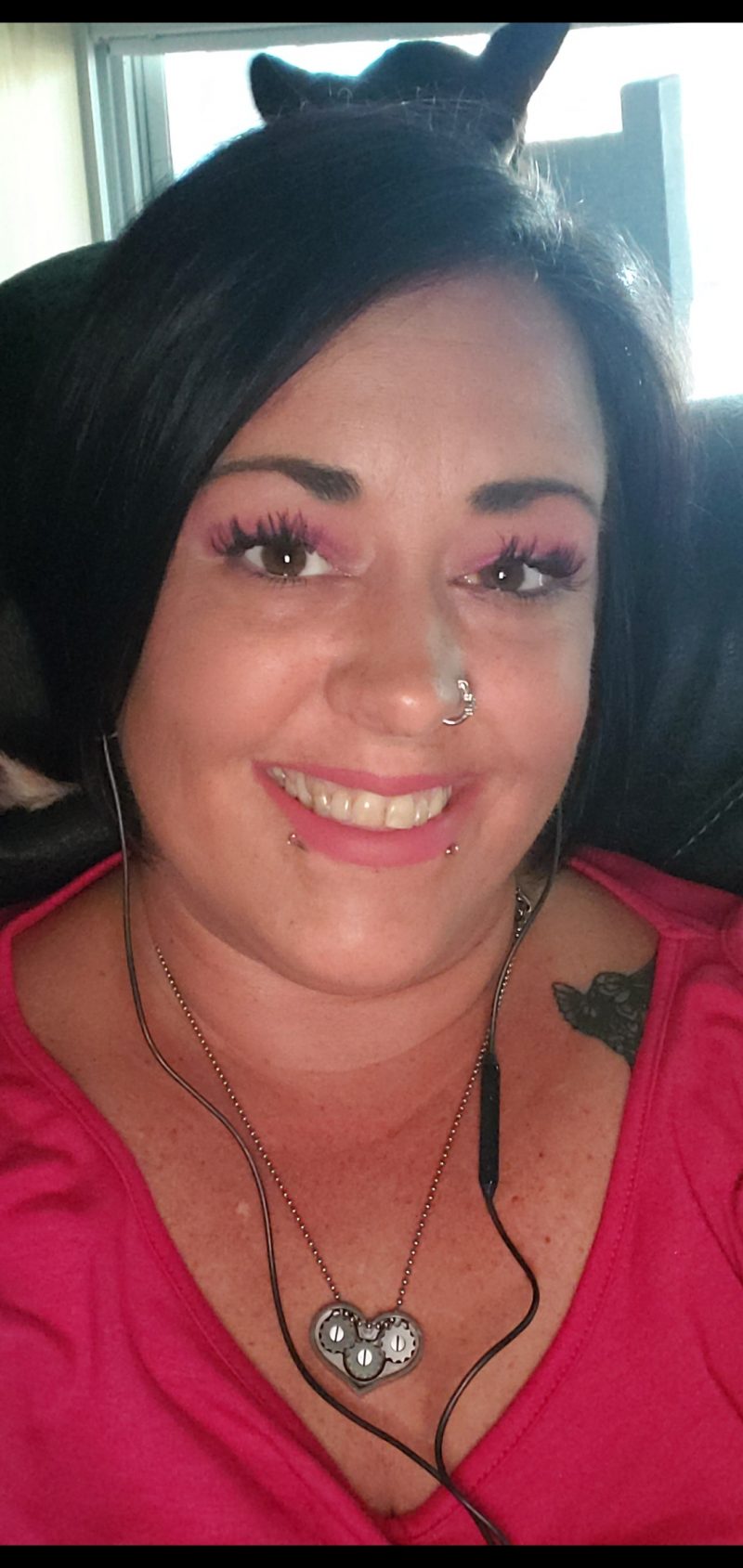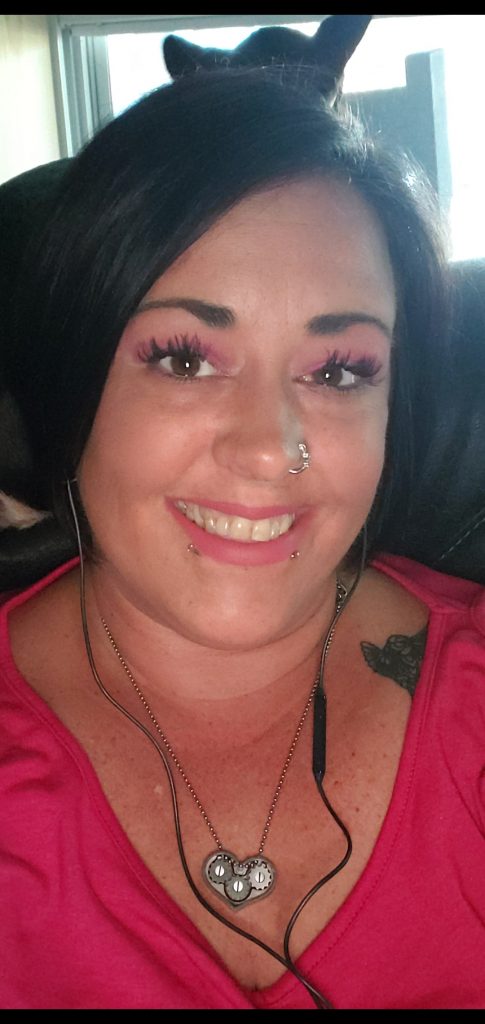Hang in There
After seeking mental health help for 18 years, I was diagnosed with Bipolar 1, PTSD, and anxiety at 35 years old. I also sought help for substance use for nearly two decades. At 38 years old, after 22 years of active use, I was finally accepted into a dual diagnosis treatment center. This year I celebrated five years in substance use recovery and three years in mental health recovery. I was considered a high functioning addict. Most would view this as a positive in a negative situation, but that affected my ability to access the help I truly needed. If I wasn’t living on the streets, homeless, and breaking the law to support my habit, I wasn’t taken seriously. I was repeatedly dismissed no matter whether I sought help through counselors, psych wards, or substance use treatment. Psych wards would state that they didn’t assist with substance use unwilling to dig into my mental health issues co-occurring with my substance use. This mentality helped in keeping me unhealthy, mentally, physically, and emotionally. My life was put into jeopardy numerous times due to my addiction and mental health issues. I could have died. I should have died, literally.
Earlier this year unfulfilled in my job, I decided to quit on a whim after learning about the Peer Support Specialists’ profession. Peer Support Specialists are people in substance use recovery or mental health recovery with lived experienced that work inside of a clinical setting that helps trained professionals without lived experience to understand the plight of addiction and mental illness. We also work one on one with patients like us to help them find available resources, share what worked for us, and assists them with recovery tools, programs, and meetings. I have always been drawn to helping others, specifically those in mental and emotional anguish. I believe that any person seeking help should never have to fight the system the way I had to fight to receive the help I knew instinctively I had found my calling.
I found the required courses, paid my dues, put my head down in sheer determination to succeed, studied, and passed the state exam. My final training was a conference in early March. The COVID-19 pandemic was starting to hit the states. I had already received all the required training for my credentials, but this conference was the leading conference in the state for Peer Support Specialists. I knew I would learn so many things that would help me help others. As the wife of a husband that has a chronic lung disease called COPD, who is on oxygen, and takes breathing treatments, I struggled to determine if I should attend. On the day of the conference, I decided to go. Thankfully, I wasn’t infected.
Upon arrival home, I mailed my training certificates to the state. Forty-seven days after quitting my job, I became a state-certified Peer Support Specialists. I was ecstatic and beyond ready to start giving back to my community and reaching out for those consumed by the fire to be the supporter and the advocate that everyone deserves. Due to living in the poorest county in my state I knew the job opportunities were limited under normal circumstances, but I could have never known the effects the pandemic would have on my ability to find employment.
I found myself sitting at home, unemployed with no available opportunities with all of this passion, determination, and education that I felt was slipping away due to a lack of the ability to implement my new knowledge. Almost without awareness, depression, and disappointment sunk its claws in me and rocked me to my core. I never felt I was called to or found my purpose in any profession outside of my attempts to help the homeless, addicted, or those struggling with mental illness on a personal level. During training, it felt like my entire life, my mental health and addiction issues, my lived experience with both, and the issues with the system were not entirely in vain. I vividly remember the exact moment that my entire life seemed to make sense.
The shame of my struggles became viewed as purposeful. Maybe my struggles and survival after experiencing years of survivor’s guilt were meant to bring me to this very point in life. For the first time in life, I felt at peace within myself. My experiences provided me with invaluable insight, and finally, I was able to align my passion with a profession. Like a thief in the night, it felt like the pandemic had stolen it all. My purpose, my newfound hopes, dreams, and passion seemed obliterated. I begin questioning if this was some divine intervention that fueled self-doubt. I contemplated going back to work in an unrelated field. While thinking about that, I discovered online lectures that allowed me to build more contact hours. These courses will enable me to continue my education, build my resume, sharpen my skills, and learn to implement some of the tools I have acquired on self-care.
While I still struggle with self-doubt, I also struggle with the anxiety of being infected and infecting those I love. I struggle with depression and overwhelming sadness every day as I see the death toll tick higher. I am heartbroken and angry for our essential workers on the front lines without the equipment they need to protect themselves and to help all of their patients. Daily, I remind myself of the reality of my life compared to theirs and realize how blessed I truly am. Perspective helps me tremendously. None of us know how this will end, but no matter what, I want you to know that you are never truly alone. Our sadness or depression dealing with COVID-19 are warranted emotions. If you need help, please seek it no matter how many times you have to ask.
Finally, thank you to Stigma Fighters for allowing me to share my story. I am honored to be able to participate with such an amazing organization.
BIO: Carisa Collins-Caddle has struggled with PTSD, mental illness, anxiety with compulsive traits since childhood, as well as spending 22 years of active addiction. She was diagnosed with Bipolar 1, PTSD, anxiety, & a substance use disorder with compulsive traits over the last eight years. She has been in substance use recovery for five years & mental health recovery for three years. She recently quit her job to follow her passion for helping others like her. Last month she became a state-certified Peer Support Specialist. She continues to seek employment during the pandemic. Her mission in life is to be an advocate & supporter for those seeking help with mental health &/or substance use so that no one will feel as alone or come as close to death as she did try to access help. She also contributed to Stigma Fighters Anthologies II. You can find here on Facebook here.









Leave A Comment